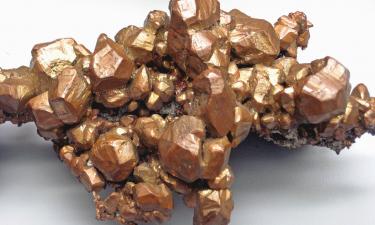The “gas crisis” between Russia and Belarus has been settled
 The “gas crisis” between Russia and Belarus has been settled
The “gas crisis” between Russia and Belarus has been settled
Now Western Europe can count on some benefits from the agreements signed by the two Slavic countries.
In the end of last week the relations between Russia and Belarus improved significantly.
First, in the evening of August 18 Interim Board Chair of Gazprom joint-stock company Alexander Ananenkov met the director general of Beltransgas joint-stock company Dmitry Kazakov. They both confirmed the expedience of establishing joint venture on the basis of Beltransgaz on parity basis and said that it will increase efficiency of the joint projects in the sphere of natural gas. The next day, Alexei Miller and Dmitry Kazakov confirmed their intentions at the press conference.
On August 19, there was a meeting of Russian government which approved giving $175 million loan to Belarus for 5 years. Minister of Finance Alexei Kudrin said that Belarus will spend $150 million from the loan on purchasing Russian gas at higher prices, and the rest $25 million will be spent on maintaining commodity circulation between Russia and Belarus.
The first payment on the loan is in two years.
Probably, these agreements allowed Russian President Vladimir Putin to have an extremely optimistic mood during his meeting with Byelorussian President Alexander Lukashenko in Sochi. After the meeting, President Putin said that there are no problems in power energy sphere left between Russia and Belarus. Moreover, there is an opportunity to put the relations between the two countries on a new level. According to the Russian President, Gazprom and Beltransgaz are working on the plans of cooperation for 2005 and long-term perspective.
When speaking on the economic ties between Russia and Belarus, Vladimir Putin meant not only gas. The Russian President also said that the dynamics of the trade between Russia and Belarus is on a good level, the increase of the commodity circulation between the two countries is 38% for the last 6 months. “This resulted from the activity of the businessmen and the state institutions”, said Russian President.
Meanwhile, not all the issues between Gazprom and Beltransgaz has been settled, аnd during the negotiations it was Russia who made concessions, not Belarus.
Previously, Gazprom stopped supplying natural gas to Belarus because of the argument about the price for gas and its transporting. Gazprom offered to set the gas price as $52 per 1,000 cubic meters, Beltransgaz - $46.67. Finally, an agreement was signed in Byelorussian capital Minsk in June on supplying 10.2 billion cubic meters of Russian gas at the price of $46. 68 per thousand cubic meters, to Belarus. Also, Russia offered to pay maximum $0.67 for transit of 1,000 cubic meter of gas per 100 kilometers. Belarus wanted to charge Russia $1.02 for this. Now. Russia will pay $0.75.
The arguments on the future joint venture will take place minimum until October. Russia and Belarus were going establish a joint venture on the basis of Beltransgaz until July 1, 2003. However, the parties have different estimates of the Beltransgaz assets. The Byelorussians believe that their gas giant costs $5 billion, while Russians are ready to purchase 50% of the company… at the nominal cost (when Beltransgaz was being established, its authorized capital stock was set as $520 million). In the end of May it was decided to require an independent expert - the London office of Deloitte & Touche – to estimate the Beltransgaz assets (this estimation will have been completed by October 1.
Meanwhile, Europe’s gas supplies to some extent depend on the agreements between Russia and Belarus. This is about an important part of the transcontinental gas pipeline “Yamal-Europe”. Currently a relatively small part of the pipeline “Smolensk (Russia) – Malnov (Germany) is functioning, and the it goes through Russia, Belarus, Poland and Germany. However, in future the pipeline will be stretched from the center of Europe to Western Siberia to connect the gas deposits of Yamal Peninsula with Western Europe. The pipeline’s length in Germany will be over 4,000 kilometers. The output of only one pipeline will be 33 billion cubic meters of gas per year.
On the Byelorussian part of the pipeline, only one compressor station Nesvizhskaya is functioning, аnd the four other stations ("Orshanskaya", "Krupskaya", "Minskaya" and “Slonimskaya") are under construction.
At their meeting, the CEOs of Gazprom and Beltransgaz discussed the construction work at "Slonimskaya" and "Krupskaya" compressor stations – minor arguments between the two Slavic countries should not influence the overall situation in Europe, neither they should deteriorate the image of Russia or Belarus. So, not only President Putin, but also Europe can be glad with the progress in the Russian-Byelorussian relations.
Alexei Perfiliev
Subscribe to Pravda.Ru Telegram channel, Facebook, RSS!





